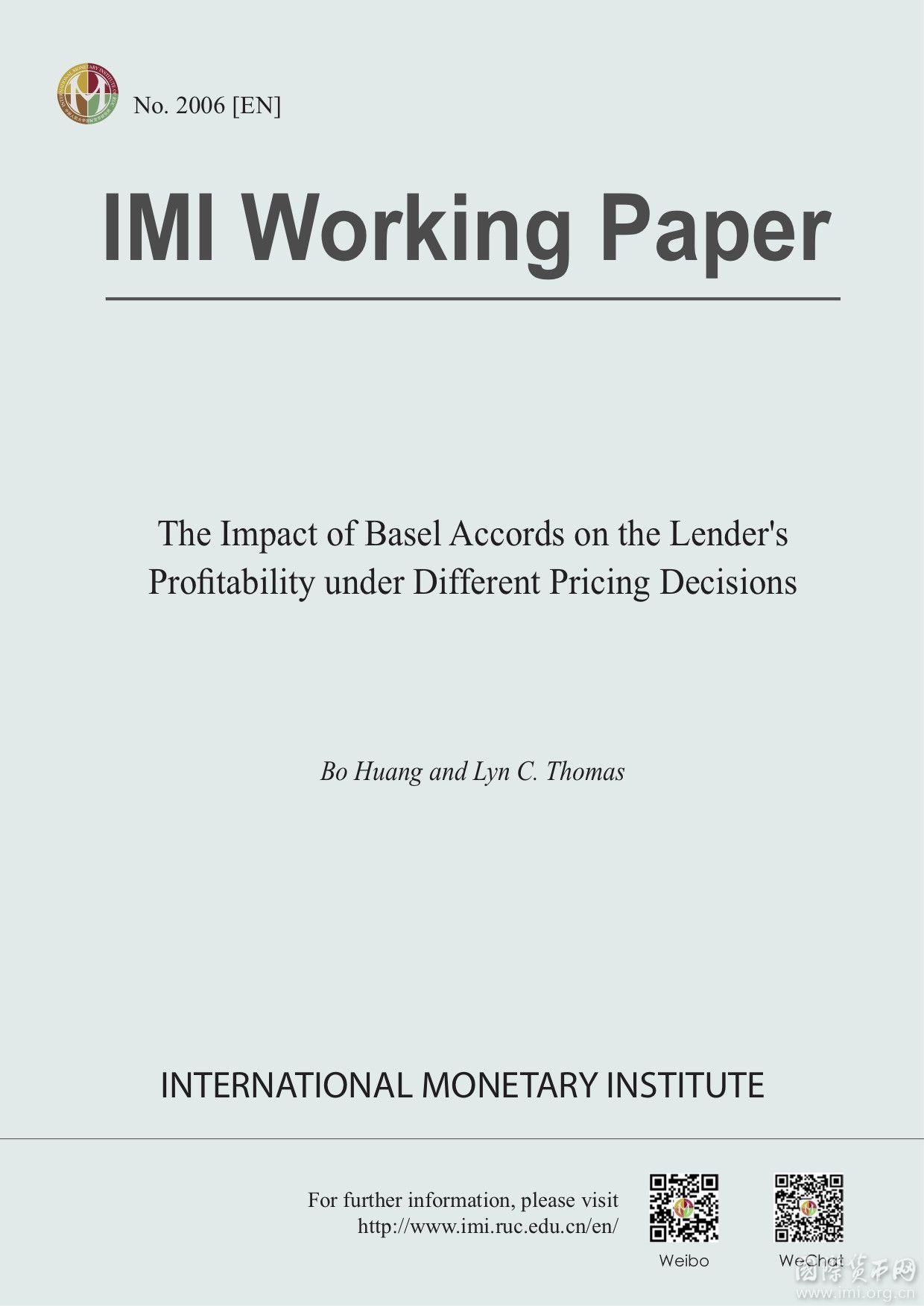【Abstract】
In response to the deficiencies in financial regulation revealed by the global financial crisis, the Basel Committee on Banking Supervision (BCBS) is proposing to introduce a new capital regulatory standard to improve the banks' ability to absorb shocks arising from financial and economic stress. The regulatory capital requirements in the third of Basel Accords is conceptually similar to the mixture of Basel I (risk-invariant requirements) and Basel II (risk-based requirements), it introduce a non-risk based measure to supplement the risk-based minimum capital requirements and measures.
We look at how the interest rate charged to maximise a lender's profitability is affected by the different versions of the Basel Accord that have been implemented in the last 20 years. We investigate three types of pricing models on a portfolio of consumer loans. These are a fixed price model, a two price model and a variable risk based pricing model. We investigate the result under two different scenarios, Firstly where there is an agreed fixed price the lender has to pay to acquire capital in the market and secondly when the lender decides in advance how much if its equity capital can be used to cover the requirements of a particular loan portfolio. We develop an iterative algorithm for solving these latter cases based on the solution approaches to the former. We also look at the sensitivity of the lending policy not only to the different Basel Accords but also to the riskiness of the portfolio and the costs of capital and loss given default values.
【Authors】
Huang Bo, Research Fellow of IMI, Associate Professor, School of Finance, Renmin University of China.
Lyn C. Thomas, School of Management, University of Southampton, Highfield, Southampton.
